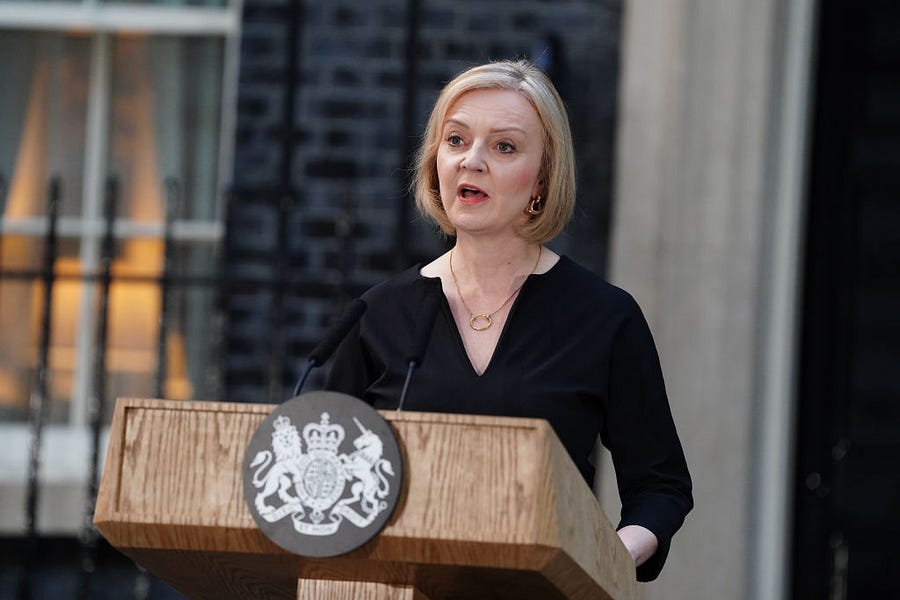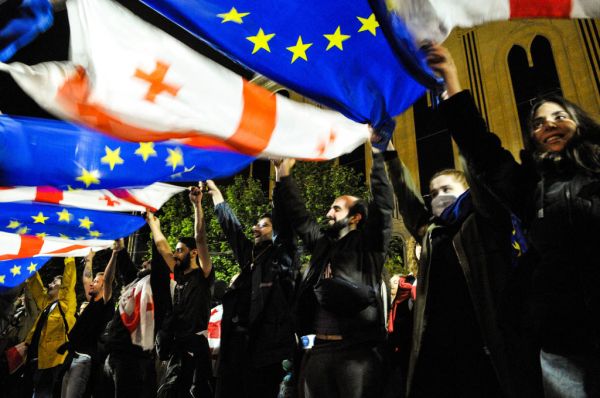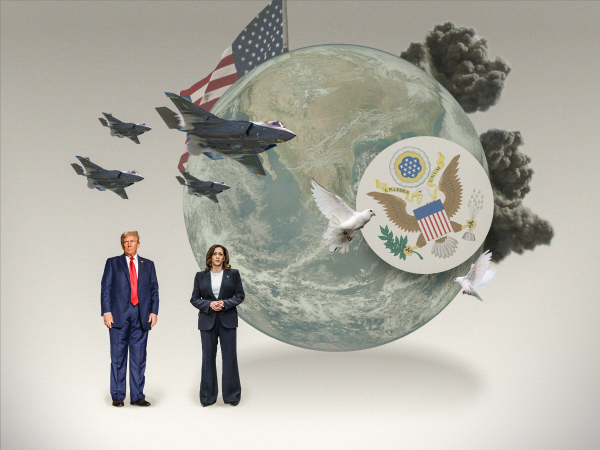The United Kingdom’s Liz Truss took office this week as the 15th prime minister in the reign of Queen Elizabeth II. The former foreign secretary has the desire and potential to be an exceptional American ally—if President Joe Biden does his part.
Truss is the country’s third female leader and fourth Conservative since her party returned to power in 2010. While she diverges from predecessor Boris Johnson’s big government conservatism, she very much represents a continuation of policy on foreign affairs. She is well and truly committed to the “special relationship” between the U.K. and U.S. The second phone call she took upon taking office, after Ukrainian President Volodymyr Zelensky’s, was Biden’s.
During her leadership bid, Truss talked up the need for strong responses to the threat from Russia, China, and Iran and made no secret of her admiration for former Prime Minister Margaret Thatcher. “United with our allies, we will stand up for freedom and democracy around the world,” she said in her inaugural speech. “We can’t have security at home without having security abroad.”
As foreign minister she led the early international response to the crisis in Ukraine, and she succeeded in cobbling together early support. The U.K., Poland, and the Baltic states began sending weapons to the endangered democracy while others dithered ahead of the Russian attack. Likewise, she helped to secure a deal between the U.K., Poland, and Ukraine on economic and defense cooperation. The United States has since followed these policies.
Truss made her priorities clear in her first address. The question is whether the Biden administration has the appetite to engage on them.
As international trade secretary (2019-21), Truss pursued ambitious trade deals. She secured once seemingly unlikely agreements with Canada, Australia, and others. But her white whale was always across the pond. Certainly a priority will be securing an amicable free trade agreement with the U.S., giving American and British businesses chances to develop and grow in each other’s markets. But Biden has been relatively cool on pursuing meaningful trade agreements.
This in many ways ties in with the second objective, energy. The U.K. is, like much of Europe, is set to struggle this winter with energy prices. British politicians didn’t follow their continental neighbors in naively deepening dependence on cheap Russian gas. Rather, those addicted to Russian energy are now trying to buy from the same sources.
Truss has committed to alleviating the problem by lifting a moratorium on fracking, bringing online the U.K.’s rich reserves of natural gas. This will require support from American companies—whose world-leading technology can help turn an allied country into a self-sufficient energy power. It’s certainly a preferable option to begging authoritarian states to up production while moving to ease sanctions on problematic producers like Iran and Venezuela.
Unlike many Europeans, Truss understands that the only way of guaranteeing the future of Western hegemony is through a robust alliance of democracies. Truss is an advocate of harnessing the “Democratic 10”–Australia, Canada, France, Germany, Italy, Japan, South Korea, the United Kingdom, the United States, and the European Union–as a means of countering Chinese and Russian influence.
Truss wants to pursue a Commonwealth New Deal that would see the U.K. rival the Chinese Belt and Road system by investing in the developing world. She understands the need to once again make the case that the free world is a better partner than the autocratic one.
When the prime minister makes her first international visit later this month to the United Nations in New York, she will call for a more united front. Her intention will be to create a coalition of the willing to stand up for Western values. The least she will need to succeed is the support of the United States.
The greatest point of contention continues to be the strained relationship with the EU. “Any trade deal between the U.S. and U.K. must be contingent upon respect for the Agreement and preventing the return of a hard border. Period,” Biden tweeted in 2020 about the Good Friday Agreement during a trade dispute between the Brits and Brussels bureaucrats. This gave the EU a moral boost but peace in Northern Ireland is hardly that simple an issue.
Biden’s preference for Germany and continental Europe is no secret, particularly after the U.K. left the EU, but assumptions in Washington that cooperation with Paris and Berlin are more desirable are outdated. Germany and France have demonstrated dangerous naivety to the threat posed by Russia, China. and other autocracies, while the U.K., U.S. and NATO’s eastern front have marched nearly in lockstop.
Will Biden recognize that there is more to be gained from cooperating with London than working against it?
Robert Tyler is senior policy adviser at New Direction, a think tank founded by Margaret Thatcher to promote the development of center-right politics in Europe.








Please note that we at The Dispatch hold ourselves, our work, and our commenters to a higher standard than other places on the internet. We welcome comments that foster genuine debate or discussion—including comments critical of us or our work—but responses that include ad hominem attacks on fellow Dispatch members or are intended to stoke fear and anger may be moderated.
You are currently using a limited time guest pass and do not have access to commenting. Consider subscribing to join the conversation.
With your membership, you only have the ability to comment on The Morning Dispatch articles. Consider upgrading to join the conversation everywhere.